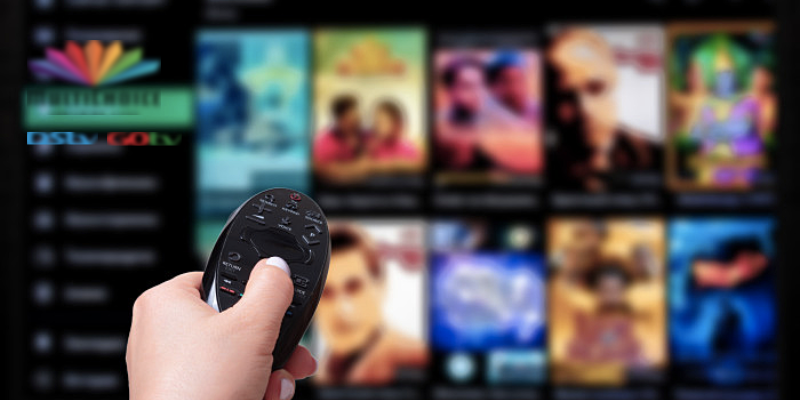







































Major milestones of Canal+’s $3.17bn Multichoice acquisition deal
 MAJOR
MAJOR
 2024
2024
 D2D
D2D
 APRIL
APRIL
 WOULD
WOULD
Canal+ has finalised its $3.17 billion acquisition of MultiChoice after two years of negotiations, marking the first time the African media giant has come under foreign ownership. The deal delists MultiChoice from the Johannesburg Stock Exchange (JSE) after 29 years and signals a significant shift in Africa’s pay-TV and streaming landscape.
With the acquisition, Canal+ now controls over 94% of MultiChoice shares, giving it full authority to delist the company from the JSE. The French group also plans to list its shares in Johannesburg, enabling continued participation for South African investors in the combined business.
Faced with declining pay-TV revenues and increased streaming competition, Canal+’s acquisition of MultiChoice offers a strategic entry into Africa’s burgeoning entertainment market, providing MultiChoice with financial stability and international expertise.
How it started: Canal+ makes its move
In February 2024, Canal+ made its first public offer to acquire MultiChoice, valuing the company at R31.7 billion ($1.7 billion).
- The offer represented a 40% premium over MultiChoice’s existing market value. Canal+ contended that a merger would provide MultiChoice with the scale and expertise necessary to compete with global streaming platforms like Netflix and Amazon Prime Video.
- MultiChoice rejected Canal+’s offer in the same month, deeming it an undervaluation. Canal+ was already MultiChoice’s largest single shareholder, holding over 30% of its shares.
- Following Canal+’s stake increase to 35.01%, South Africa’s Takeover Regulation Panel mandated a full buyout bid to other shareholders, as the increase triggered the country’s takeover rule.

From bid rejection to negotiation
Following the mandatory offer, MultiChoice’s board established an independent committee in April 2024 to evaluate the takeover proposal.
- Around the same period, Canal+ raised its bid to about $1.9 billion (R35 billion), signalling its determination to acquire full control.
- That month, Canal+ increased its stake to over 40%, consolidating its position and initiating negotiations to comply with South African broadcasting ownership laws restricting foreign control.
- To address this, the companies formed LicenceCo, a South African entity managing local operations and broadcasting licences. This was crucial for regulatory approval and to alleviate concerns about foreign ownership of local media.
Also read: Canal+ seals $3.17bn MultiChoice takeover with new CEO, board announcements
Regulators give the green light
By February 2025, Canal+ and MultiChoice had secured key regulatory approvals. The Competition Commission and later the Competition Tribunal approved the merger, describing it as a transaction that would not harm competition in the local market.
- The value of the deal had by then increased to around $3 billion, following adjustments in share price and exchange rates. MultiChoice also began transferring its spectrum and communications licenses to Canal+, which allowed the process to move forward smoothly.
- To manage operational integration, Canal+ extended its merger deadline to October 2025, giving both companies time to align their systems and business structures.
Restructuring and leadership changes
- By August 2025, MultiChoice had begun an internal restructuring process. This included consolidating its regional business units, preparing new compliance structures, and adjusting its operations under Canal+ oversight.
- In September 2025, Canal+ announced that the takeover had been finalised at $3.17 billion (R55 billion). The group appointed David Mignot as Chief Executive Officer for African operations, alongside a new board to oversee strategy and integration.
- The move was followed by new plans to expand MultiChoice’s content distribution. Through its film arm, StudioCanal, the French company revealed intentions to sell MultiChoice’s local content to international markets, potentially giving African productions more global visibility.

Canal+ plans secondary listing in Johannesburg
- After completing the $3.17 billion acquisition of MultiChoice, Canal+ announced plans for a secondary listing on the Johannesburg Stock Exchange (JSE).
- The delisting of MultiChoice is expected before the end of 2025, and Canal+ aims to begin trading its shares in Johannesburg within a nine-month timeframe, targeting September 2026.
- The secondary listing is designed to allow South African investors to maintain access to the combined business and preserve market liquidity.
- Canal+ will retain its primary listing in London, while the Johannesburg listing allows the company to broaden its investor base and increase valuation.
- The group has also confirmed that the integration of MultiChoice operations has started, and it will share more detailed plans in the first quarter of 2026.
This deal marks one of Africa’s largest cross-border media transactions and reflects the impact of global media consolidation on the continent’s entertainment landscape. MultiChoice, formerly an independent African broadcaster, is now integrated into a global network across Europe, Asia, and Africa.
Why the deal matters
By joining Canal+, it gains access to global capital, advanced technology, and distribution networks that could keep it competitive. For Canal+, the deal provides access to millions of African viewers, expanding its presence in a market with one of the world’s youngest and fastest-growing audiences.
Canal+’s acquisition raises concerns about local media control, as the pay-TV operation’s direction from abroad may shift future decisions regarding pricing, programming, and regional investments to align with corporate priorities in Paris.

Still, both companies insist that the merger will protect African content, strengthen local storytelling, and improve access to world-class entertainment.
What is certain is that the pay-TV market in Africa will never be the same again. The Canal+–MultiChoice deal has redrawn the map of media power on the continent, and signalled that survival in today’s digital entertainment space may require partnerships beyond national borders.

